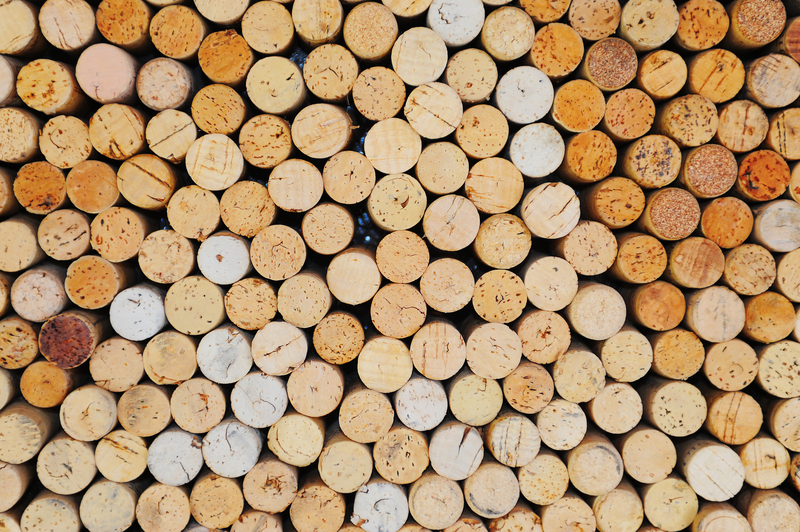How to Recycle and Reuse Bulky Items Without Breaking the Bank
Are old sofas, broken appliances, or outdated furniture cluttering your home, garage, or neighborhood curb? Bulky item disposal can seem daunting and expensive, but with the right strategies, you can recycle and reuse bulky items affordably--or even for free! This guide explains how to recycle and reuse bulky items without breaking the bank, offering actionable tips, eco-friendly solutions, and creative reuse ideas for all types of large household goods.
Why Bulky Item Recycling and Reuse Matter
Every year, millions of tons of large household items--furniture, mattresses, appliances, and more--end up in landfills. Improper disposal increases environmental pollution and wastes resources. Learning how to recycle or repurpose these items not only saves money, but also helps protect the environment by reducing landfill waste and supporting a circular economy.
- Environmental Impact: Recycling and reusing large items keeps valuable materials out of landfills and reduces greenhouse gas emissions.
- Community Benefits: Donating or repurposing items strengthens local communities and helps those in need.
- Cost Savings: Reusing items effectively means less money spent on new purchases.

Common Bulky Items You Can Recycle or Reuse
- Sofas, couches, and armchairs
- Beds and mattresses
- Large appliances (refrigerators, stoves, washing machines)
- Tables, desks, cabinets, and shelving units
- Televisions and home electronics
- Carpets and rugs
- Bicycles and outdoor toys
- Exercise equipment and sports gear
Affordable Bulky Item Recycling: Smart, Low-Cost Solutions
Many people think recycling bulky household items is costly--but it doesn't have to be! Here are several budget-friendly ways to give your large items a second life.
1. Check Local Municipal Programs
Many cities and towns offer bulky item collection days where residents can place large items on the curb for pick-up, often at no charge. Contact your local waste management office or search online for your city's bulky item recycling program.
- Pro tip: Some municipalities allow free drop-off of certain electronics, mattresses, or metal items at recycling centers.
2. Utilize Retailer Take-Back and Recycling Programs
If you're upgrading your appliances or furniture, ask the seller if they offer removal and recycling services as part of the delivery. Major retailers often haul away old items for free or a minimal fee, and responsibly recycle them.
- Examples: Best Buy for electronics; IKEA for furniture recycling; appliance stores for white goods.
3. Donate Gently Used Items
Donation is one of the most cost-effective (and altruistic!) ways to avoid landfill. Charities like Goodwill, Habitat for Humanity ReStores, and the Salvation Army often accept reusable furniture, mattresses (if in good condition), and some appliances.
- Tip: Some non-profits offer free pick-up services for large donations--check their websites for details.
4. List on Online Marketplaces and Freecycle Groups
Platforms like Craigslist, Facebook Marketplace, and Freecycle connect people who need large items with those looking to give away or sell them. Even broken or outdated furniture can find new homes with crafty upcyclers or DIYers.
- Be honest in your descriptions and consider including "free to collect" to attract takers quickly.
5. Community Swap Events and Yard Sales
Organize or participate in a neighborhood swap or community yard sale. This can be a fun, social way to recycle bulky goods locally, keeping items in use and out of the waste stream.
- Join local "Buy Nothing" or swap groups on social media to expand your reach.
Creative Ways to Reuse or Repurpose Bulky Items Cheaply
One person's trash is another's treasure! Before throwing away that old couch or broken dresser, consider these creative reuse and upcycling ideas that require little investment.
1. Furniture Makeovers and DIY Projects
A coat of paint, new upholstery, or hardware upgrades can work wonders. Repurpose:
- Bookshelves as pantry or workshop storage
- Old doors as headboards or dining tables
- Cribs transformed into benches or desks
- Drawers as wall shelves or under-bed storage
2. Upcycle Wooden Furniture
Solid-wood items can be sanded, re-stained, painted, or even deconstructed for parts to repair other furniture or build new items:
- Bed frames become garden trellises, gates, or potting benches
- Chairs with broken legs can be turned into garden planters or porch swings
3. Repurpose Appliances and White Goods
* Metal parts from washers and dryers can be scrapped or used for projects.
* A broken fridge can become a unique tool storage cabinet in the garage.
* Old oven racks make sturdy shelving or grill grates.
* Washer drums are often repurposed as fire pits or outdoor stools.
4. Mattresses and Box Springs
Clean, pest-free mattresses can be donated to shelters. For unusable bulky mattresses:
- Remove fabric and foam for pet beds or cushions.
- Reuse wooden frames for DIY projects.
- Donate springs to scrap yards or use as trellis material in the garden.
5. Turn Old Carpets and Rugs Into Something New
- Cut carpet pieces become welcome mats, garage or basement flooring, or protective pads for moving furniture.
- Rug samples are perfect for cat scratchers or small pet bedding.
Where to Find Free or Affordable Recycling Centers for Bulky Items
Safe, responsible recycling isn't always free--but there are resources to help minimize or eliminate costs:
- Municipal household waste facilities: Many offer bulky item drop-off days or year-round service at a low cost.
- Private recycling yards: Scrap yards and metal dealers may accept appliances and electronic waste, often free for items with valuable metal content.
- Mattress recycling programs: Search for statewide mattress recyclers--many accept drop-offs with a small fee or provide collection services during clean-up events.
- Retailer buy-back programs: Some electronics stores offer trade-ins or recycling for old TVs and computers.
Cost-Saving Tips for Bulky Item Disposal
Disposing of large items can be affordable--or even free--with a bit of planning:
- Give away items first, then recycle or trash only what remains.
- Break items down: Dismantle furniture or appliances to fit in standard trash bins or make them easier to transport.
- Join community clean-out initiatives that offer free or discounted large-item pickups seasonally.
- Share truck rental or disposal costs with neighbors disposing of similar items.
Things To Avoid When Recycling or Reusing Bulky Items
To ensure safety, legal compliance, and environmental stewardship, always:
- Avoid dumping items illegally or leaving them on the curb outside designated pick-up times.
- Check local regulations--some items (e.g., mattresses or electronics) may require special handling.
- Clean and sanitize items before donation or reuse, especially upholstered furniture or mattresses.
- Be wary of hazardous materials: Appliances may contain refrigerants or chemicals needing safe removal.

The Environmental Benefits of Affordable Recycling and Reusing
Repurposing and recycling large household items not only save money but also yield major environmental benefits:
- Conserves resources: Keeps raw materials in use and reduces demand for new products.
- Reduces landfill waste: Bulky items take up significant landfill space and break down slowly.
- Prevents pollution: Responsible disposal keeps toxins from electronics and treated woods out of soil and water.
- Supports sustainable consumption: Sharing, reusing, and upcycling help shift society toward a more environmentally responsible lifestyle.
Conclusion: Recycling and Reusing Bulky Items for a Greener, Cheaper Tomorrow
Learning how to recycle and reuse bulky items without breaking the bank is a win for your wallet, your community, and the planet. With local programs, online platforms, creative upcycling, and a little effort, you can keep large household items out of the landfill and contribute to a more sustainable future. Next time you need to clear out space--think reuse, recycle, and reinvest in a cleaner world!
Ready for your next eco-friendly clean-out?
Check with your local recycling center, offer items for free online, or try one of the cheap, creative reuse projects listed above. Even the biggest items can have a second (or third) life--without costing you a fortune!